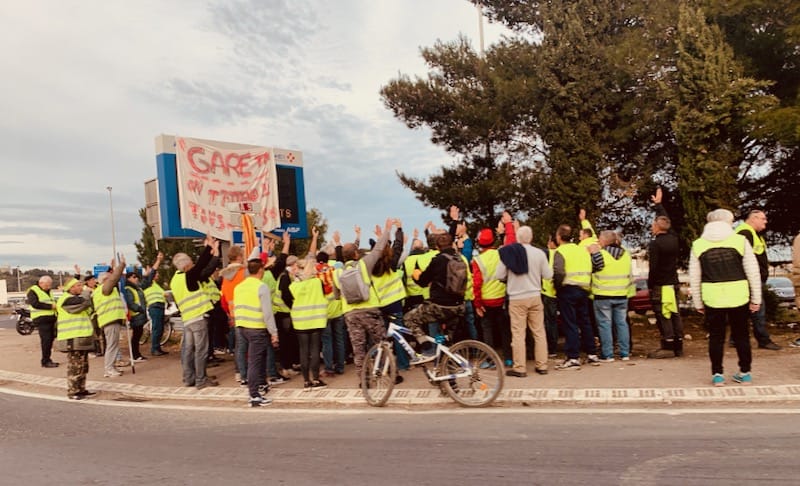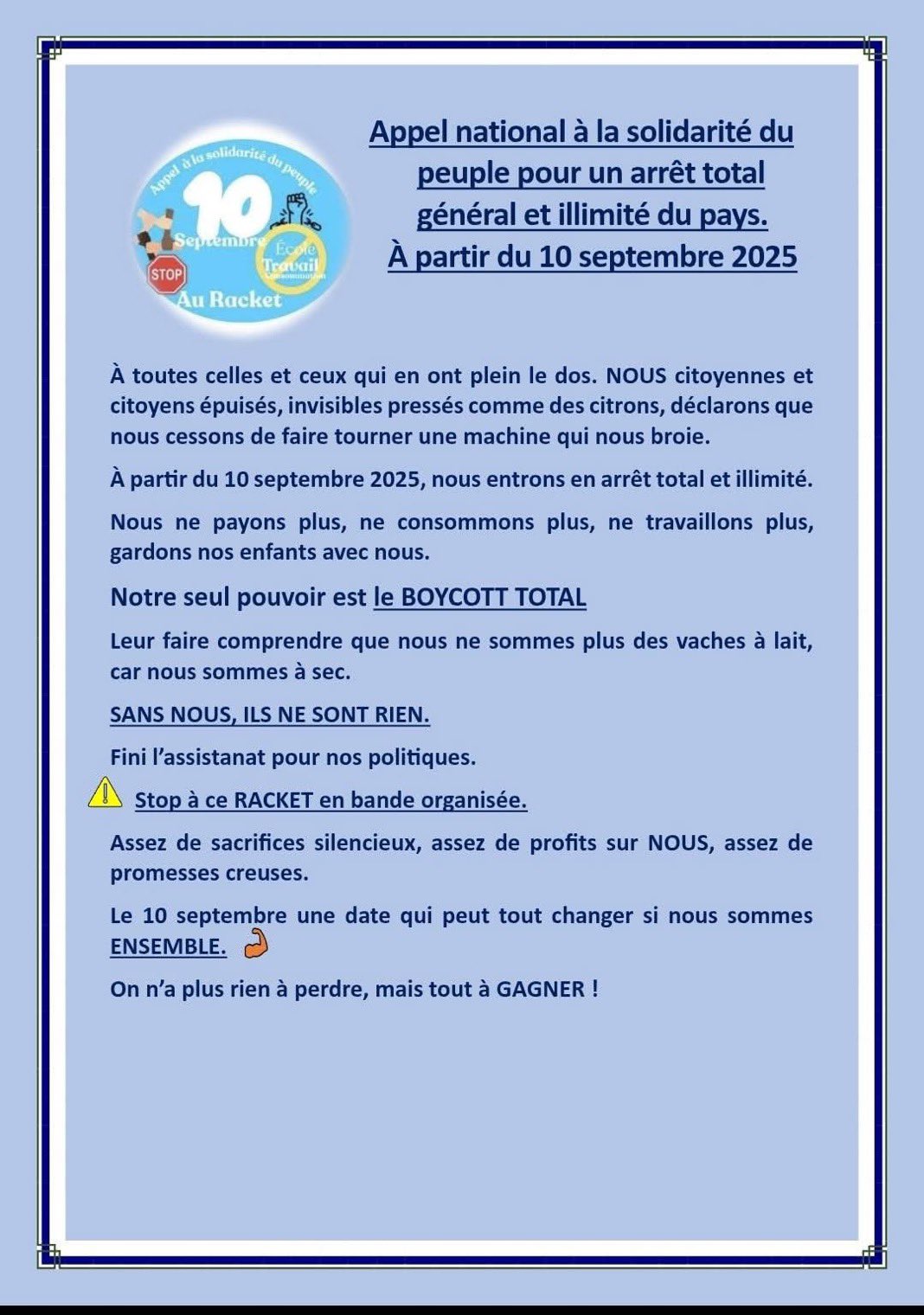“On September 10th, We’re Blocking Everything”: The Movement Taking Aim at Austerity
A new slogan is picking up traction across France: “On September 10th, we’re blocking everything.” What started as a small initiative by a little-known collective has quickly grown into a national conversation.
The message is clear: this is a protest the government’s latest austerity measures, and the plan is to make it impossible to ignore.
The movement BLOQUONS TOUT is being organised by a group of just 20 people, who have chosen to remain anonymous and claim no official ties to any political party. Still, the campaign has spread widely online, with support and criticism coming in from across the political spectrum.
What Sparked It?
The protest is a direct response to the budget plan introduced by François Bayrou, High Commissioner for Planning. The plan includes cuts that many see as symbolic of a larger shift in the government’s approach to public services. Among the most controversial proposals is the elimination of two public holidays, intended to boost productivity and reduce public spending.
To those behind the movement, these decisions are not just inconvenient; they’re seen as another step in dismantling social protections, especially for working-class communities.
On their blog, the collective writes: “We’re tired of being the ones who always have to make sacrifices. While the wealthiest remain untouched, it’s the rest of us who are expected to give more and get less.”
Their demands are broad, but they revolve around a return to social solidarity: a country that protects its workers, invests in public services, and stops what they describe as “permanent cuts dressed up as reforms.”
Not Just a March, A Full Shutdown
This isn’t being framed as a typical demonstration. The group is calling for a total shutdown of normal life starting September 10th.
They’re encouraging supporters to:
- Boycott supermarkets and major chains
- Withdraw money from large banks
- Stop work
- Occupy symbolic public spaces
- Block access to key roads or infrastructure
- Create local strike funds and mutual support networks
The idea is to make visible how society depends on the very people being affected by these austerity measures. In tone and style, the protest mirrors the Yellow Vest movement, which emerged in 2018 to fight fuel price hikes and broader economic inequality.
A Politically Complicated Landscape
Although the collective insists it is “outside of politics,” the digital footprint of the movement tells a more complicated story. While much of the support comes from left-wing activists and unions, the campaign is also being widely circulated by far-right figures and conspiracy-aligned accounts.
According to Libération’s CheckNews team, early followers of the group’s X (formerly Twitter) account include individuals linked to nationalist platforms, anti-immigration rhetoric, and Kremlin-aligned “reinformation” media.
The founder of the movement, speaking to L’Humanité, defended this open-door stance: “We accept support from anyone who wants to fight this plan. We’re not interested in party labels, only in action.”
Still, some critics argue that allowing such a wide range of political actors to shape the conversation could dilute the message or open the movement to manipulation.
What Happens on September 10?
At this stage, it’s difficult to predict how far-reaching the impact will be. Organisers are relying heavily on online mobilisation and grassroots energy, much like previous decentralised movements in France. Whether this translates to large-scale participation on the day remains to be seen.
Remember les Gilets Jaunes?


What’s clear, however, is that public frustration over austerity is growing, and the upcoming protest has struck a chord, particularly among younger workers, unions, and citizens who feel politically unrepresented.
With social and economic tensions simmering beneath the surface, movements like this are a reminder that policy decisions made in government halls often ripple out far beyond them.
The collective has already published a map of rallies and blockades on its website. Actions are planned for September 10 in many cities across France: Amiens, Angers, Avignon, Besançon, Bordeaux, Brest, Clermont-Ferrand, Dijon, Grenoble, Le Mans, Lille, Limoges, Lyon, Marseille, Metz, Montpellier, Nancy, Nice, Orléans, Pau, Poitiers, Reims, Rennes, Strasbourg, Toulouse, Troyes, and Valenciennes.
Strategic blockades are also planned, notably at the Port of Le Havre and the Refineries in the Île-de-France region.
France has seen waves of protest before but this one is different in its strategy, its scale, and its ambiguity. Whether it leads to meaningful change or just another moment of unrest will depend on what happens next.
CREDIT: Juliana Zammit



Thank you for this well researched commentary. Very useful to help understand the full background.